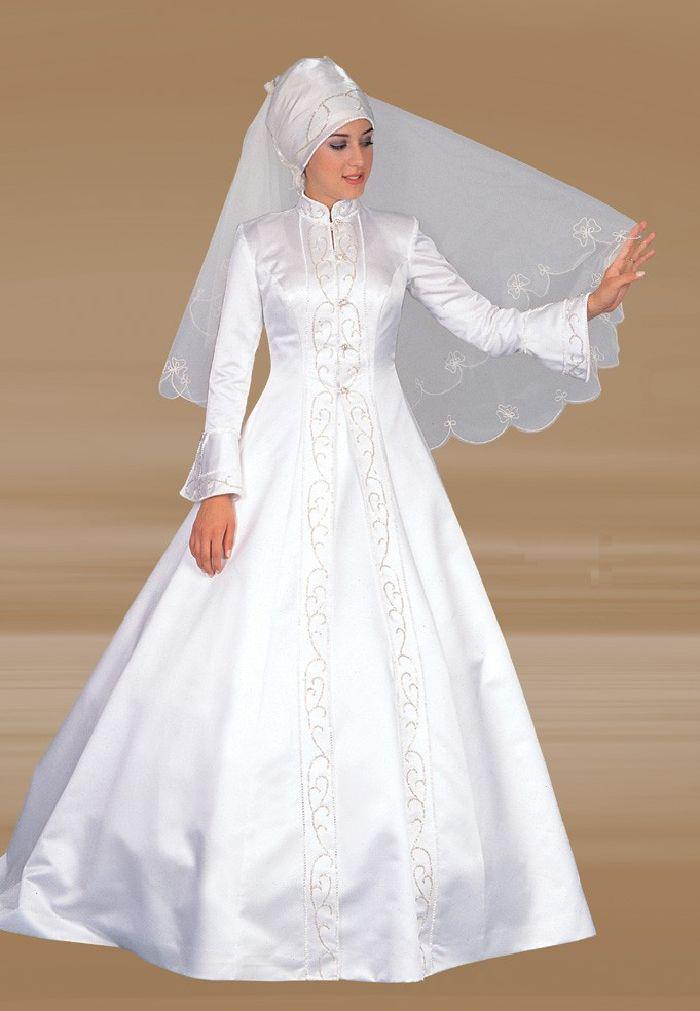Islamic wedding dresses hold a special place in the hearts of brides, representing cultural heritage, elegance, and spirituality. The beauty of these gowns isn’t just in their design but also in the stories they tell and the traditions they uphold. As we delve into the world of Islamic wedding dresses, we’ll explore various styles, fabrics, and inspirations that make each piece unique.
So whether you are a bride-to-be, a wedding planner, or simply someone interested in fashion, this guide will provide you with insights into the world of Islamic wedding dresses. Let’s embark on this beautiful journey of love, culture, and style!
Table of Contents
- The Importance of Islamic Wedding Dresses
- Popular Styles of Islamic Wedding Dresses
- Fabrics Used in Islamic Wedding Dresses
- Accessories to Complement Your Dress
- Tips for Shopping for Islamic Wedding Dresses
- Biographical Notes on Islamic Fashion Designers
- Sourcing Ethical and Sustainable Dresses
- Conclusion
The Importance of Islamic Wedding Dresses
Islamic wedding dresses are more than just garments; they symbolize the union of two souls under the blessings of Allah. The significance of these dresses lies in their representation of cultural identity, modesty, and elegance. Many brides feel that wearing a traditional dress enhances their spiritual connection to the ceremony and their families.
Modesty and Elegance
In Islamic culture, modesty is a core value. Islamic wedding dresses are designed to reflect this principle while still being incredibly stylish. The designs often feature long sleeves, high necklines, and flowing silhouettes that create an air of grace and sophistication.
Cultural Heritage
Each region has its own distinct style of Islamic wedding dresses, influenced by local traditions and fabrics. From the intricate beadwork of South Asian dresses to the elegant simplicity of Middle Eastern styles, each dress tells a story of its cultural roots.
Popular Styles of Islamic Wedding Dresses
When it comes to styles, Islamic wedding dresses offer a plethora of options. Here are some popular styles that brides often choose:
- A-Line Dresses: Flattering for all body types, the A-line dress flows beautifully from the waist down.
- Ball Gown: For brides wanting a fairy-tale look, ball gowns with voluminous skirts are a popular choice.
- Mermaid Style: This style hugs the body and flares out at the knees, offering a sexy yet modest look.
- Kaftan Dresses: Inspired by traditional garments, kaftan dresses are perfect for a luxurious and comfortable wedding outfit.
- Two-Piece Outfits: Combining a long skirt with a stylish top, two-piece outfits are trendy among modern brides.
Fabrics Used in Islamic Wedding Dresses
The choice of fabric can significantly affect the overall look and comfort of an Islamic wedding dress. Here are some popular fabrics used:
- Satin: Known for its luxurious feel and sheen, satin is a popular choice for formal dresses.
- Lace: Adding texture and delicacy, lace is often used in overlays and detailing.
- Chiffon: Lightweight and flowy, chiffon is perfect for creating ethereal looks.
- Silk: A classic fabric, silk drapes beautifully and adds an elegant touch.
Accessories to Complement Your Dress
Choosing the right accessories is essential to complete the bridal look. Here are some accessories to consider:
- Hijabs: Available in various styles, a hijab can beautifully complement the wedding dress.
- Jewelry: Statement pieces like necklaces, earrings, and bracelets can enhance the overall look.
- Bags: A chic clutch or embellished bag can add a touch of glamour.
- Shoes: Comfortable yet stylish shoes are crucial for a day full of activities.
Tips for Shopping for Islamic Wedding Dresses
Finding the perfect Islamic wedding dress can be a daunting task. Here are some tips to make the shopping experience easier:
- Set a Budget: Determine how much you are willing to spend and stick to it.
- Start Early: Begin your search several months in advance to allow time for fittings and alterations.
- Research: Look for local designers or bridal shops that specialize in Islamic wedding dresses.
- Consider Customization: If you have a specific design in mind, consider having a custom dress made.
Biographical Notes on Islamic Fashion Designers
Many talented designers specialize in creating stunning Islamic wedding dresses. Here’s a look at some notable figures in the industry:
| Name | Nationality | Notable Works |
|---|---|---|
| Hana Tajima | British | Modanisa Collections |
| Yasmin Sewell | Australian | Yasmin Sewell Boutique |
| Reem Acra | Lebanese | Luxury Bridal Collections |
Sourcing Ethical and Sustainable Dresses
As the fashion industry moves towards sustainability, many brides are seeking ethical options for their wedding dresses. Here are some ways to source sustainable Islamic wedding dresses:
- Local Artisans: Supporting local artisans can help promote ethical practices in fashion.
- Vintage Dresses: Consider wearing a vintage dress or one that has been passed down through generations.
- Eco-Friendly Fabrics: Look for designers who use organic or recycled materials.
Conclusion
In summary, Islamic wedding dresses are a beautiful fusion of tradition and modernity, offering brides an array of styles and options to choose from. By understanding the significance of these dresses, the various styles available, and how to shop sustainably, brides can make informed choices that resonate with their values and aesthetic preferences. If you have any thoughts or experiences related to Islamic wedding dresses, feel free to leave a comment or share this article with others who may find it helpful!
Call to Action
If you enjoyed this article, consider exploring more about wedding fashion and traditions. Share your thoughts in the comments below, and don’t forget to check out our other articles for more inspiration!
Thank you for reading, and we hope to see you back here for more exciting content!
Article Recommendations
- Meet Timothy Christopher Stokely An Accomplished Visionary
- Jensen Ackles Daughter A Glimpse Into The Life Of A Celebrity Child
- Miranda Lambert Cup Size Measurements And Appearance


